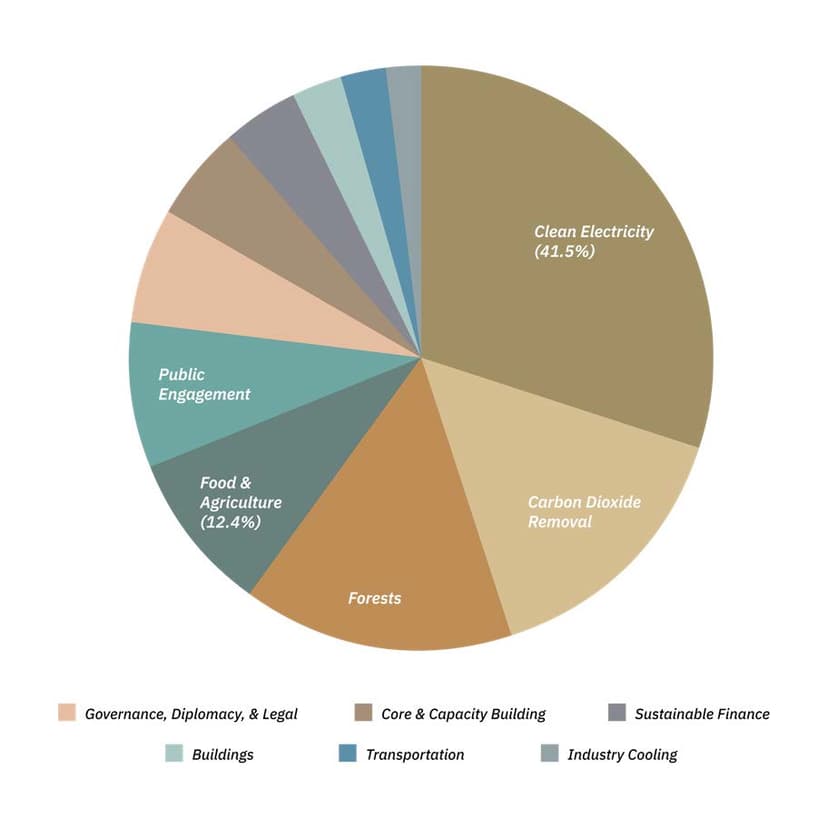Narrative Intelligence in Action
Transformative engagements spanning labor justice, climate systems, cultural movements, and regenerative futures, showing how Narrative Intelligence maps power, reveals hidden narratives, and creates strategic interventions for systemic transformation.
Beyond Carbon
Challenge

Climate philanthropy and aid are widely positioned as essential to solving the climate crisis, yet both remain captured by a carbon centric and technocratic worldview. Funding flows are directed toward measurable, short term fixes such as clean energy, industrial decarbonization, and carbon offsets while the deeper systemic drivers of ecological collapse remain unaddressed. This approach perpetuates the illusion of green growth, reinforces global inequalities by allowing the North to continue polluting while outsourcing costs to the South, and sidelines Indigenous knowledge and community driven solutions. The core challenge was to ask: How can climate finance move beyond its fixation on carbon metrics and growth to address the real crisis of consumption, extraction, and inequality.
Breakdown of Funding (Average 2018-2022)

Data Source: ClimateWorks Foundation. (2023). Funding trends 2023: Climate change mitigation philanthropy. Retrieved from https://www.climateworks.org/report/funding-trends-2023
Approach
The project combined financial analysis, discourse critique, and ecological assessment to interrogate the assumptions underpinning climate finance. Using datasets from ClimateWorks, OECD, and other sources, we mapped where climate philanthropy and aid money actually flows, and whose interests it serves. We examined how technocratic solutions, carbon markets, and offset schemes obscure systemic harm and how growth centered logics drive resource extraction and ecological destruction. By incorporating the Material Footprint lens, which measures total resource use beyond carbon emissions, the research exposed the hidden costs of renewable energy and industrial agriculture. Alongside this critique, the report highlighted alternative frameworks such as degrowth, bioregionalism, agroecology, and Indigenous ontologies that center justice, care, and ecological balance.
Key Outcomes
• Demonstrated that climate philanthropy overwhelmingly funds Northern led, growth oriented solutions while neglecting grassroots, justice centered approaches.
• Revealed how climate aid often recycles development funds and flows back to donor economies through offsets, large scale renewables, and infrastructure designed for export.
• Exposed the illusion of green growth, showing that absolute decoupling of GDP and ecological impact has not been achieved, even in wealthy countries.
• Introduced Material Footprint as a more accurate ecological measure than carbon alone, capturing the hidden costs of resource extraction, industrial agriculture, and supply chains.
• Provided pathways toward a reframing of climate finance: rejecting carbon markets and technocratic fixes, and instead investing in regenerative, community led, and ecosystem centered solutions.
Project Overview
Client
ClimateWorks & Culture Hack Labs
Duration
2024
Approach
Financial analysis, discourse critique, and ecological assessment to interrogate climate finance assumptions, using Material Footprint methodology beyond carbon metrics.
This case was a Culture Hack Labs project and employs the CHL methodology
Research Methods
Key Outcomes
• Exposed carbon-centric worldview limitations
• Revealed global inequality in climate finance
• Introduced Material Footprint lens
• Provided pathways to regenerative solutions